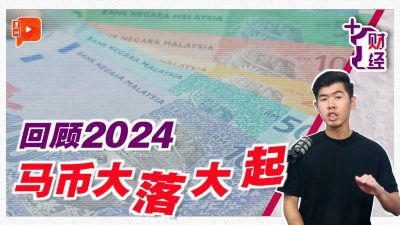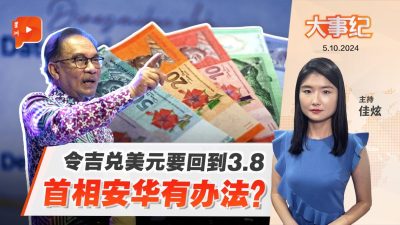
PETALING JAYA: Some regional currencies are seeing strong demand from Malaysian buyers following a sharp rise in the value of the ringgit.
As a result, moneychangers are experiencing brisk business as Malaysians take advantage of the cheaper rates.
Malaysian Association of Money Services Business president Datuk Seri Jajakhan Kader Gani said the strongest currencies in demand at the moment are the Japanese yen, Chinese yuan, Thai baht, Vietnamese dong and Indonesian rupiah.
He said the main customers are holiday travellers.
“Moneychangers have reported around a 20% increase in transaction volumes.
“Even if they do not have plans to use it soon, they will take advantage of the strong ringgit to buy and keep (the foreign currencies),” he said.
Jajakhan, when contacted, added that this surge in activity will continue as long as the ringgit stays strong during this travel season.
“Liquidity management is standard practice.
“Most moneychangers keep around 70% in foreign currencies and 30% in Malaysian ringgit, depending on market needs and customer demand.”
He added that at one popular Kuala Lumpur mall, moneychangers usually see around 3,000 customers daily, and since the Prime Minister’s announcement, that number has risen about 10% to 20%.
Recently at the Dewan Rakyat, Prime Minister Datuk Seri Anwar Ibrahim who is also Finance Minister, said the ringgit, trading at RM4.16 against the US dollar, is the best-performing currency in Asia.
He said this when Sri Gading MP Aminolhuda Hassan asked the government to list down the effectiveness of the Madani Economic Policy, as well as ongoing measures and other plans to ensure the policy meets its objectives.
Meanwhile, in Penang, the ringgit’s steady rebound against major currencies has triggered a rush for foreign currencies, with the US dollar, Thai baht and Japanese yen leading the demand.
Penang Muslim Jewellers and Money Changers Association president Datuk Anvar Hussain Rahumatullah said business along the heritage moneychanger belt has been brisk in recent days as Malaysians bought foreign currencies.
“With the ringgit strengthening against the US dollar, most locals are buying US dollars since the drop, followed by Thai baht and the Japanese yen, which also saw a drop against the ringgit.
“We expect the trend to continue as people take advantage of the stronger ringgit, something we haven’t seen for some time,” added Anvar.
He said interest was strong across different groups, from leisure travellers and retirees to small traders who made USD-denominated payments.
“Many families are preparing for the year-end holidays.
“Some traders who usually buy small amounts are now taking slightly larger positions as a buffer,” he said.
Anvar said that while the stronger ringgit had boosted confidence, consumers should remember that global currency movements could turn quickly.
“The forex market is still sensitive to interest-rate expectations and geopolitical events.
“This favourable phase may not last forever,” he cautioned.
He reminded the public to rely on licensed operators.
“George Town alone has dozens of licensed moneychangers, especially around the heritage core.
“Compare rates, check the board prices and be safe.”
Checks at moneychanger outlets along Pitt Street and nearby roads showed a steady stream of people converting ringgit into foreign currencies though there were no long queues or signs of panic buying.
Pitt Street moneychanger A. Kareem Abdullah said the current phase had emboldened retail customers.
“On normal days, people spread their purchases with a bit of US dollar, baht, yen and maybe some Singapore dollars.
“In the past week, demand is heavily tilted towards the US dollar,” he said.
Another operator, Mohd Farid Shahul Hameed, said younger customers tended to track movements closely.
“The millennials and young families come in with screenshots of the rates. Once they see the ringgit strengthening for a few days, they don’t wait, they lock in their holiday money,” he said.
ADVERTISEMENT
ADVERTISEMENT








































